EV Forum: Adopting EVs a function of effective policy, implementation and better awareness
Autocar Professional's 2-day EV forum addressed key issues hindering faster EV adoption in India and road ahead.
Faster EV adoption is increasingly becoming the buzzword for industry players and policymakers alike. But it isn’t a bed of roses and there are challenges on the way. But what should be the way forward for a seamless adoption?
It is exactly with these questions in mind, Autocar Professional decided to focus on the theme, 'Building a Sustainable EV Industry' with the 'EV Forum' - a two-day virtual conference on the emerging EV industry' on February 22 and 23.
Industry leaders representing OEMs, suppliers, charging infrastructure companies, start-ups, and government representatives share ideas on building a sustainable EV industry in India. The keynote address on Day 2 was delivered by Dr Seshu Bhagavathula, Director, Volta Trucks and Strategic advisor, Jebsen Capital. In a candid chat with Autocar Professional’s Sumantra Bibhuti Barooah, he highlighted the gradual EVolution of the industry.
Dr Seshu Bhagavathula: ‘Expect at least 150 new (electric) models coming in next 5 years.’
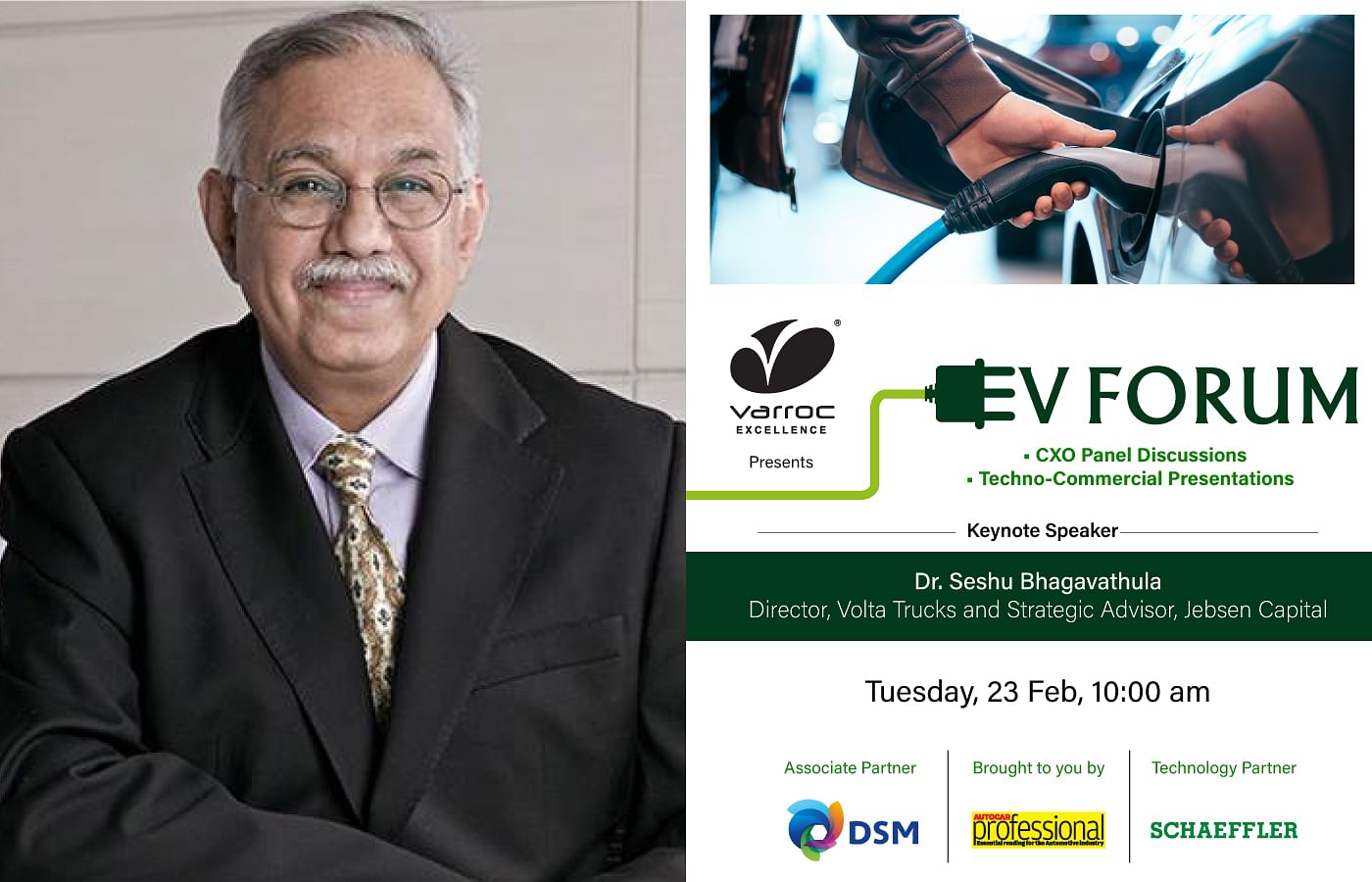
The electric vehicle isn’t a self-sufficient unit. It has a complete ecosystem around it and the often the success of it can be measured with respect to the environment around it. Dr Seshu Bhagavathula, Director, Volta Trucks and Strategic advisor, Jebsen Capital says, “the task of developing infrastructure and value chain is complex. Detailed and continuous R&D is often the root of deeper development.”
According to him, “Good infrastructure brings down the barriers to adoption of electric mobility and electric vehicles. If India can have a EV station every 40km or so, in the long term, it would help drive this new dynamic. The Battery chemistry is also important, it should be developed in a way that it can be charged faster, may be ten minutes.”
In fact Bhagavathula highlighted how the battery is one of the most expensive parts of an electric car. In case of a bus, he added that nearly 65 percent of the cost is the battery. But that does not mean the EV development cycle concentrated on only that and nothing else. He pointed out that, “development needed in the overall EV value chain including the vehicle manufacturers, battery makers, charging station managers, those in charge of technology and energy management.”
Bhagavathula added that it is complete value chain that needs to be looked into including the, “The source of electricity generation also important when we are discussing dense network on battery charging infrastructure. Second life of batteries and recycling also other important considerations when we are discussing the EV ecosystem.”
That said, he reiterated the urgency and put the focus on the limited time remaining for developing this especially when, “All major European OEMs on an EV offensive at the moment, expect at least 150 new models coming in next 5 years.”
But it is not Europe alone, he is also bullish on India’s prospects in the EV space, “India is poised to take up the EV challenge, a bottom-up approach will help sustainable development of EV ecosystem. Expect India to take leadership position in 10-15 years.”
Role of governments in the shift to zero emission mobility
That said, adequate EV penetration is also a function of appropriate policy making coupled with effective implementation. Autocar Professional strived to understand the exact equation in its panel discussion on the theme, ‘The role of governments in the transition to zero emission mobility’. The expert-studded panel of speakers included:
- Kailash Gahlot, Transport minister, Government of NCT of Delhi
- Dr Neeraj Mittal, MD & CEO • Tamil Nadu Industrial Guidance and Export Promotion Bureau
- Sohinder Gill, Director General, SMEV and CEO, Hero Electric
- Sulajja Firodia Motwani, Founder & CEO, Kinetic Green
- Anil Srivastava, Mission director, NITI Aayog
Autocar Professional’s Sumantra Bibhuti Barooah moderated the session.
Delhi’s EV Policy has been grabbing headlines. Transport Minister, Kailash Gahlot said that the, “Feedback to Delhi’s EV policy has been encouraging thus far. Between August 2020, when Policy was notified till date, we have added 7000 vehicles EVs on Delhi roads and paid Rs 13.5 crore in terms of subsidies.”
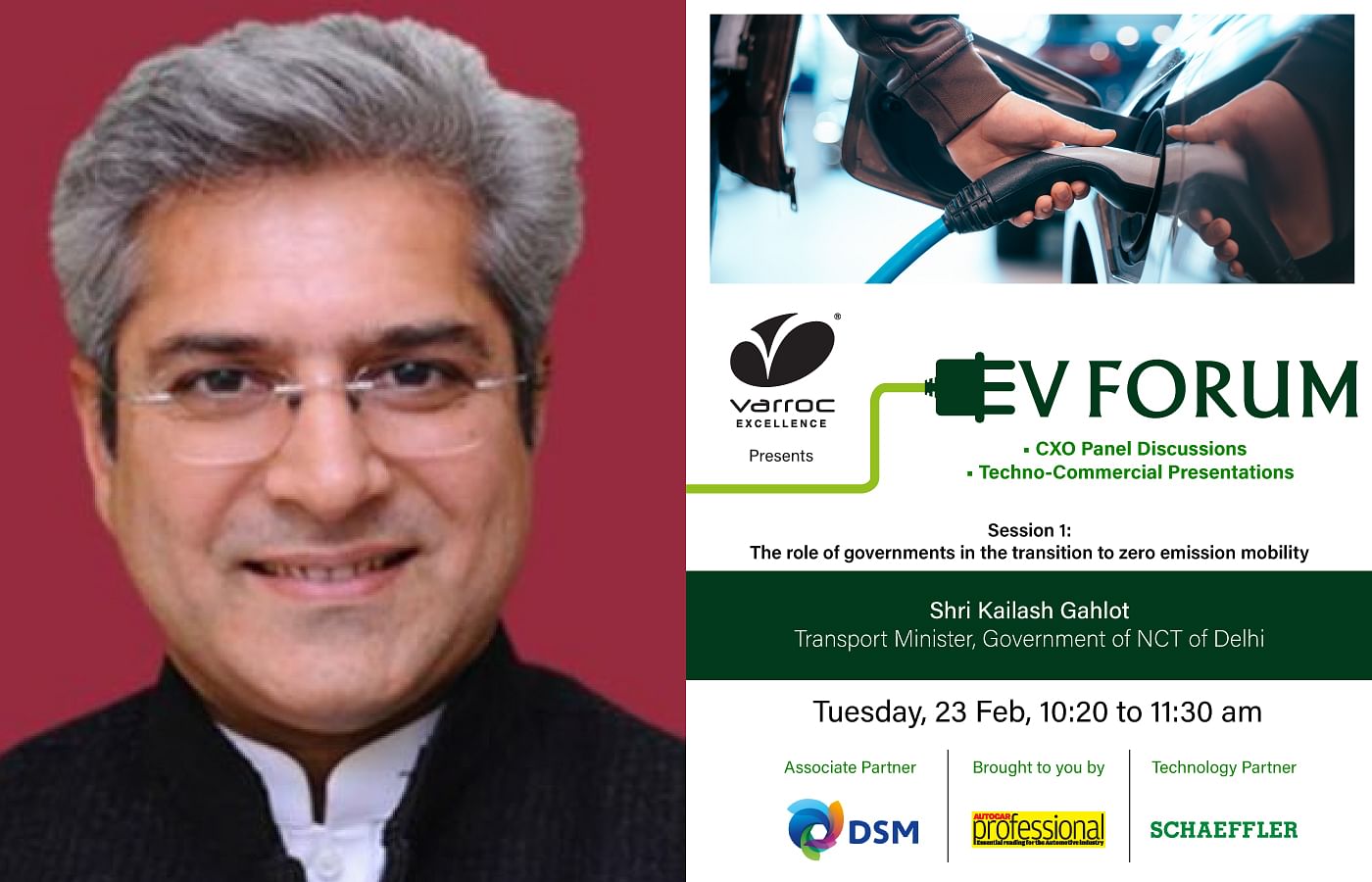
But awareness is the key to effective implementation and the Delhi Government has launched an awareness campaign to facilitate the same. Gahlot added that Delhi Government “launched an eight-week campaign, ‘Switch Delhi’ to address consumer apprehension and increase awareness about EVs amongst users. Focussing on individual segments like 2W, cars and the like. Simplifies the subsidy process and is completely online including final disbursal of money. We exempted road tax for EV users in Delhi too.”
But that is not all. He highlighted efforts to bridge the gap between ideation and actual implementation and mention that Delhi has, “Finalised deal to induct 300 electric buses in DTC (Delhi Transport Corp) and floated tenders for additional 600 electric buses. Plan to set up EV Board in a month’s time to address mismatch between policy and actual implementation.”
According to Gahlot, “Land is the biggest challenge and the most expensive component of setting up charging infra. Identified 200 potential sites and floated tender for 100 of those sites. Hope to finalise these and start work in 3-4 months. Already 70 charging stations functional in Delhi. We would like to provide at least one charging station on a grid of every 3 km.”
Dr Neeraj Mittal, MD & CEO - Tamil Nadu Industrial Guidance and Export Promotion Bureau agreed that, “It is important for policies to adapt to developing EV environment. Need to remove barriers with proactive policy for better EV adoption. Addressing concerns in supply side, demand side, battery and other related field. We have taxi permit and road tax waivers in place for those opting for EVs in Tamil Nadu to increase participation.”
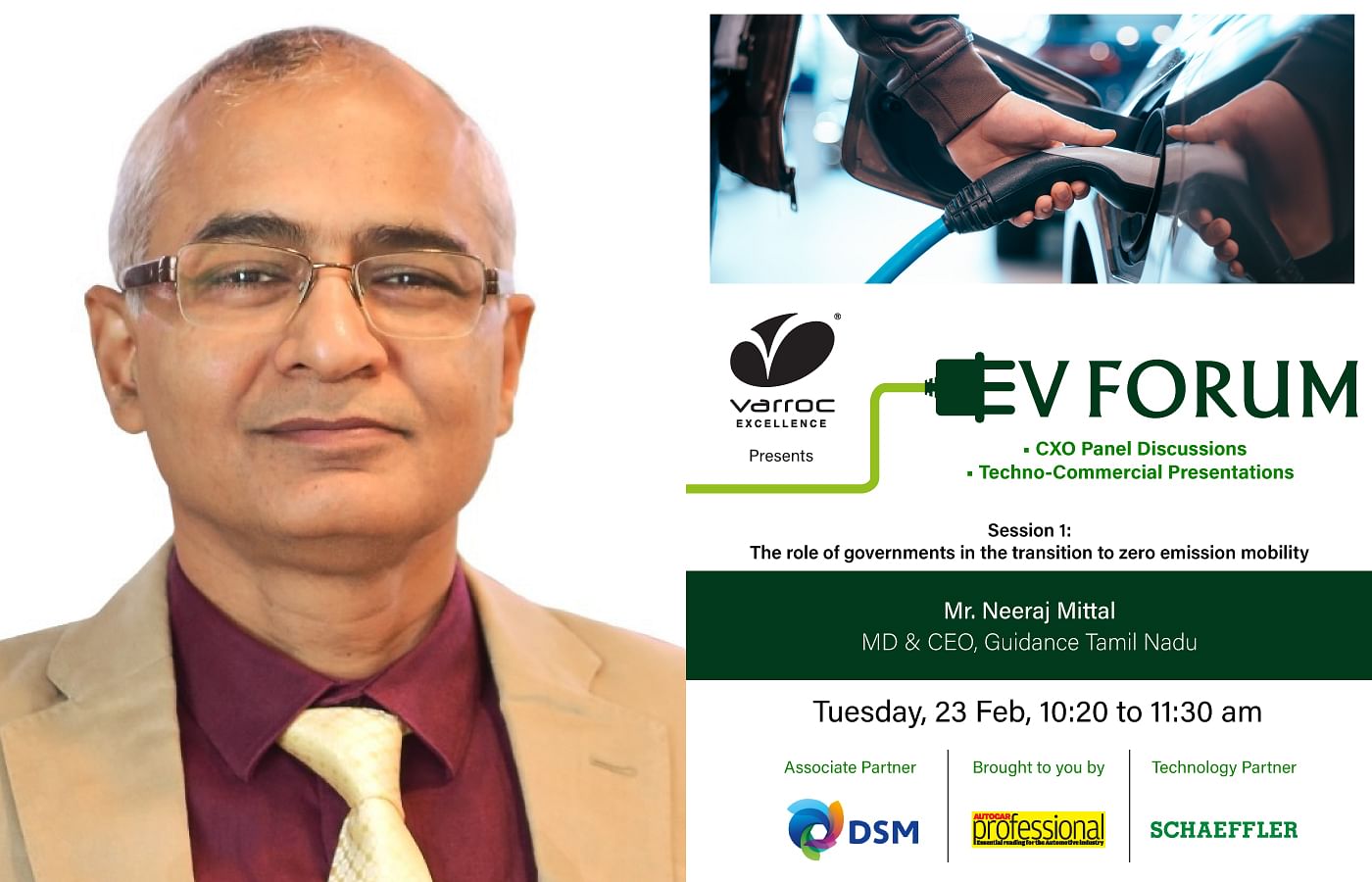
Dr Mittal highlighted the key aspects of the Policy is that it is, “comprehensive and recognises all stakeholders involved. The cumulative investment envisaged under TN EV Policy is Rs 50,000 crores and so far 16,000 crores investment has been done already. We have already generated 26,000 jobs thus far of the 1.5 lakh jobs envisaged.”
But Dr Mittal also believes that it is not just about the Government act alone and the private player also has a key role in adoption of new technology. They help create demand for the same. He feels that, “Range anxiety is a key concern in the road towards mass EV adoption, especially for four-wheelers. It need active collaboration with private sector for setting up charging infrastructure.”
Drawing inferences from his experience with players like, “Ola Electric, Ather and Ampere indicates that two-wheelers are easier to transition from ICE to EV as the concerns with regards to range anxiety much lesser. Significant demand for electric two-wheelers.”
But that does not that the Tamil Nadu government is only going for the low hanging fruit. Mittal clarified that the state is ready to, “accommodate any willing EV player including Tesla. We look forward to engaging with Tesla over the longer term.”
Sohinder Gill, Director General, SMEV and CEO of Hero Electric – a major EV two-wheeler player, however reiterated that there is, “Need to address the gap between target set and target achieved, need policy integration and implementation in shorter time. Education, awareness and government push in addition to policy-making will help in faster EV adoption.”
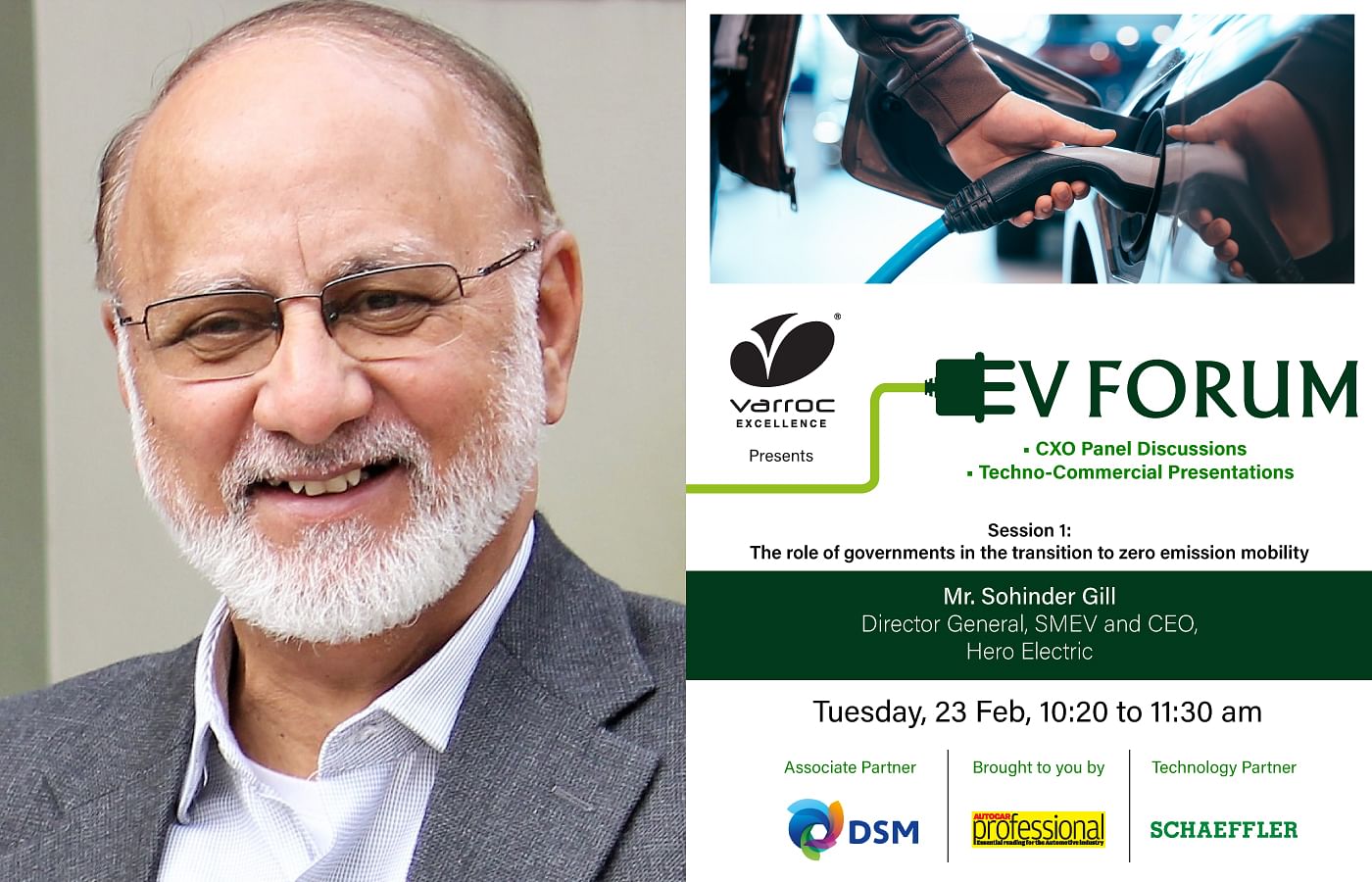
He further highlighted that lack of standardisation as an area for concern, “Standardisation is crucial and the government intervention is important in that aspect.” That said the company is bullish on its prospects going forward. He expects 10-fold growth in four years, “We target to be a half a million company in four years. Will be closing the year with 54000 units sales.”
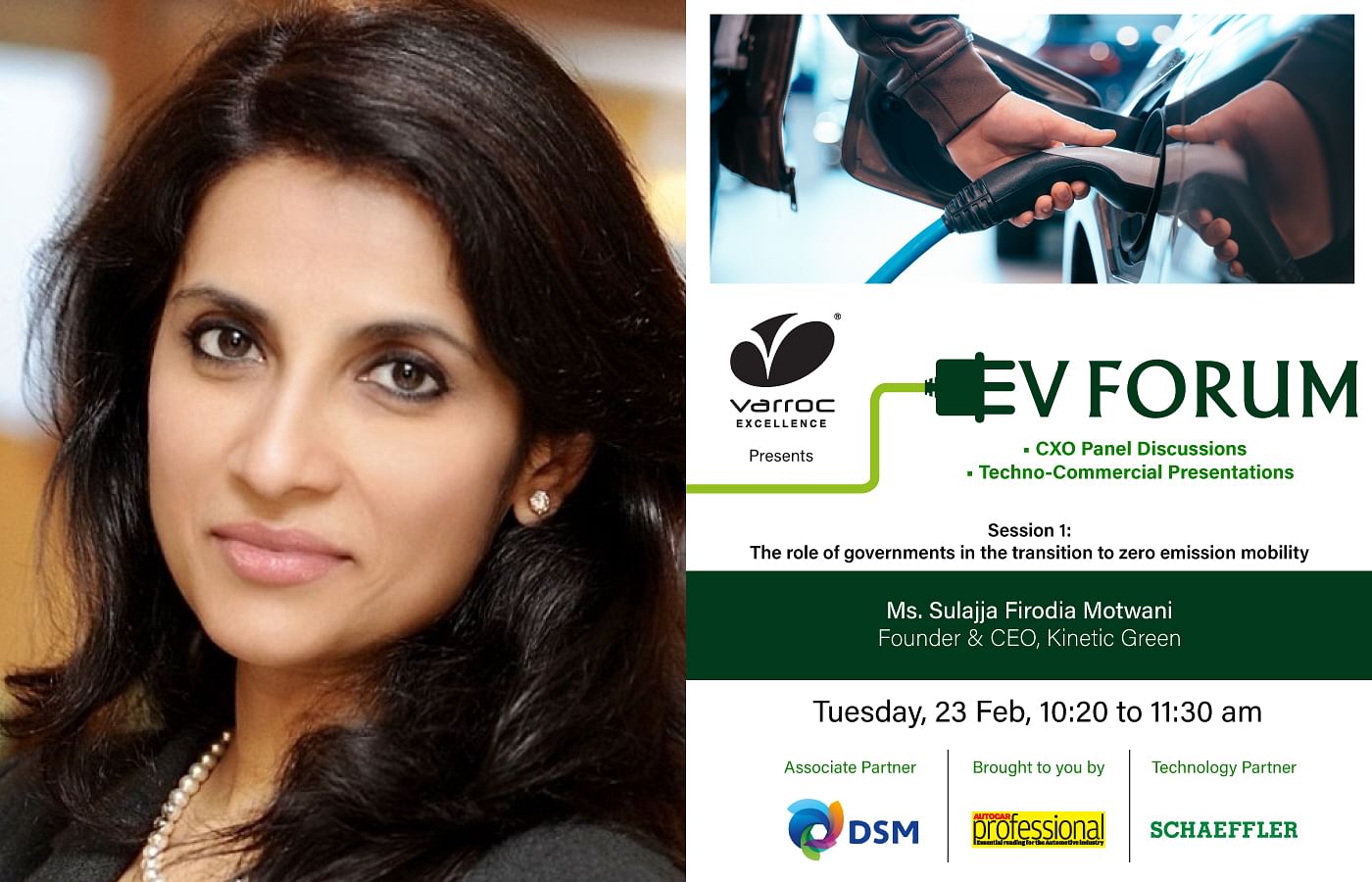
Apart from two-wheeler, electric three-wheelers, especially the last mile delivery vehicles are seeing considerable traction, especially the B2B players. Sulajja Firodia Motwani, Founder & CEO, Kinetic Green which “achieved 100 percent localisation for electric three-wheelers”, is, “Bullish on the future of electric three-wheelers in India. Need proactive participation of Indian component industry in making EV components. Govt can play a key role in increasing this participation. Stable regime of regulation can help in this regard. Kinetic Green investing in EV powertrain and motors. Collaborating with Hella to supply motors for electric three-wheelers.”
That said, she also agreed with SMEV chief Sohinder Gill about how, “Government can play a pivotal role in accelerating EV deployment in the country and introducing new technologies.”
According to her while investment can play a part over the longer-term, it is also important that policies help create demand in the short-term. But there are some areas of concern that need to be addressed on priority. She highlighted that, “Focus on battery charging and swapping infrastructure is crucial. States need to implement the waivers notified by the Ministry of Road Transport and Highways for electric three-wheelers comprehensively for faster adoption. Homologation standards for e-rickshaw needs to be tightened for standardisation and better quality. This will also add to the safety aspect.”
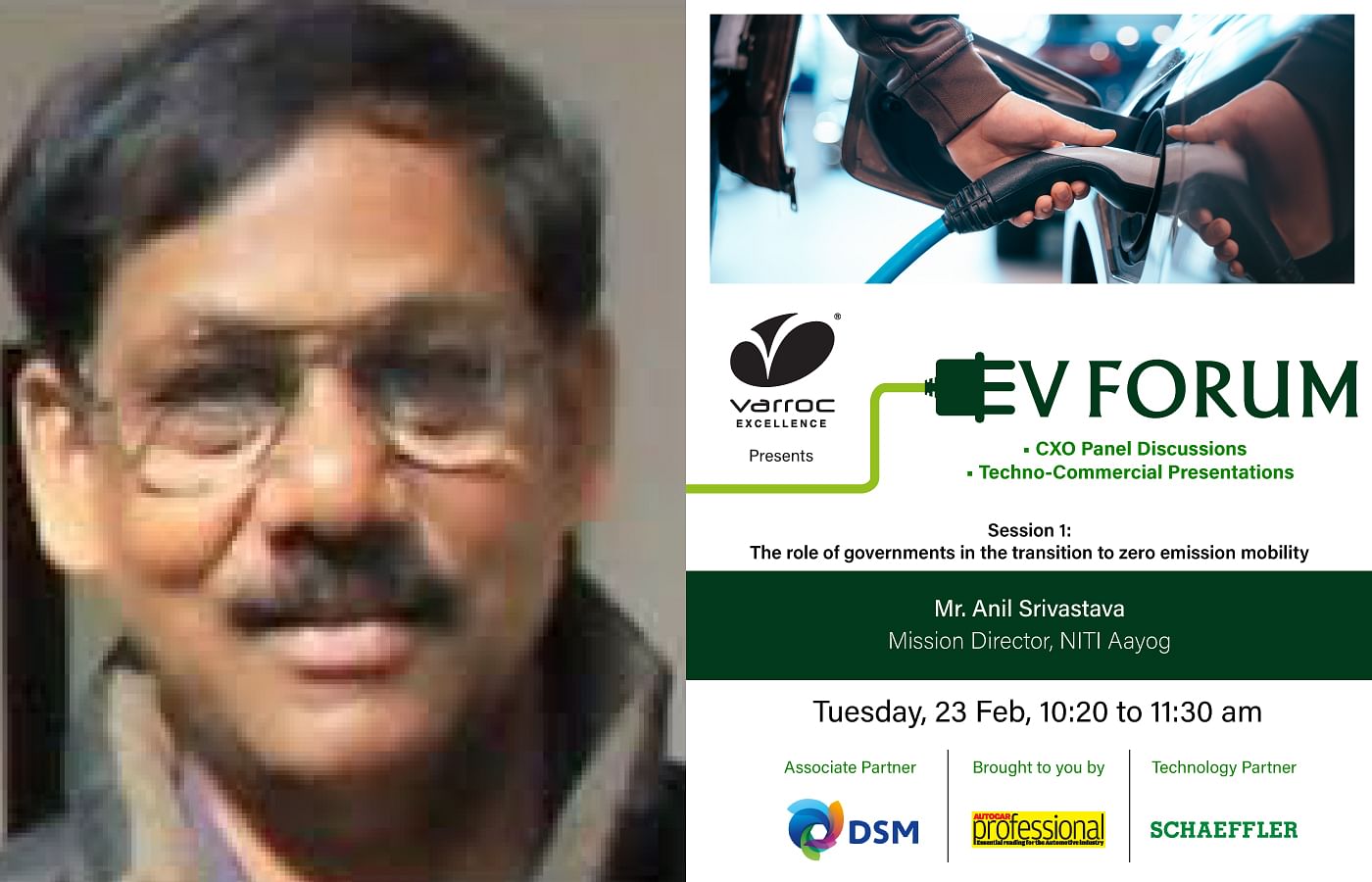
Anil Srivastava, Mission director, NITI Aayog introduced some points to ponder upon as the panel discussion ended on an optimistic note, “The EV industry is very dynamic. Need to look at the aspects missing in the FAME Scheme. It is time to relook at the future course as there are paradigm changes in the EV course. Announcements in the Budget, PLI schemes, call for Atmanirbhar Bharat will help encourage faster EV adoption. I expect more than 8-10 states to take advantage and get a significant part of the EV pie on offer.”
Solving the infrastructure challenge
By the end of the first panel it was pretty clear that adequate EV charging infrastructure is being considered as one of the key bottleneck hindering faster adoption to this technology. But is it the classic case of chicken and egg and would charging infrastructure be a function of demand and volume in the EV segment?
The second panel on day 2 of the EV forum sought to address this issue with the theme ‘Solving the infrastructure challenge’ with a cross-section of industry speakers including
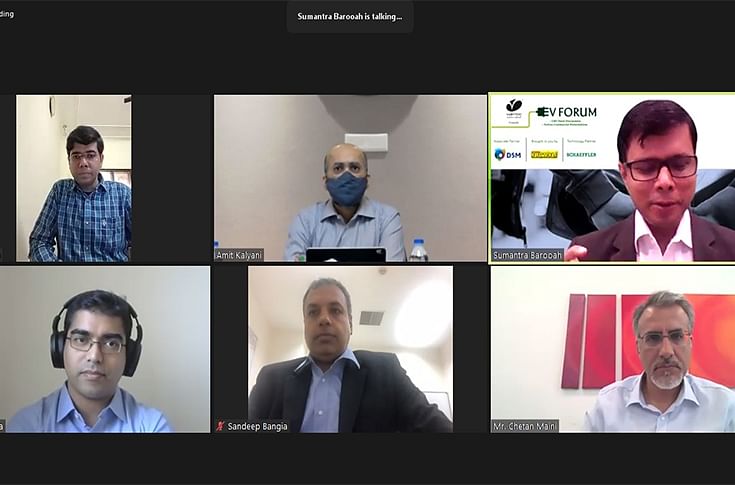
- Amit Kalyani, Deputy Managing Director, Bharat Forge
- Chetan Maini, co-founder & vice-chairman, Sun Mobility
- Sandeep Bangia, Head – Electric Vehicles and Home Automation, Tata Power
- Nilay Chandra, Director – Charging infrastructure, Ather Energy
- Maxson Lewis, MD, Magenta Power
Autocar Professional’s Sumantra B Barooah and Mayank Dhingra co-moderated the session.
Amit Kalyani, Deputy Managing Director, Bharat Forge said, “Government needs to create an enabling process to build opportunities for private players to come in and address the infrastructure demand. E-mobility at its infancy in India. As volume increases, we will move towards mass protocol.”
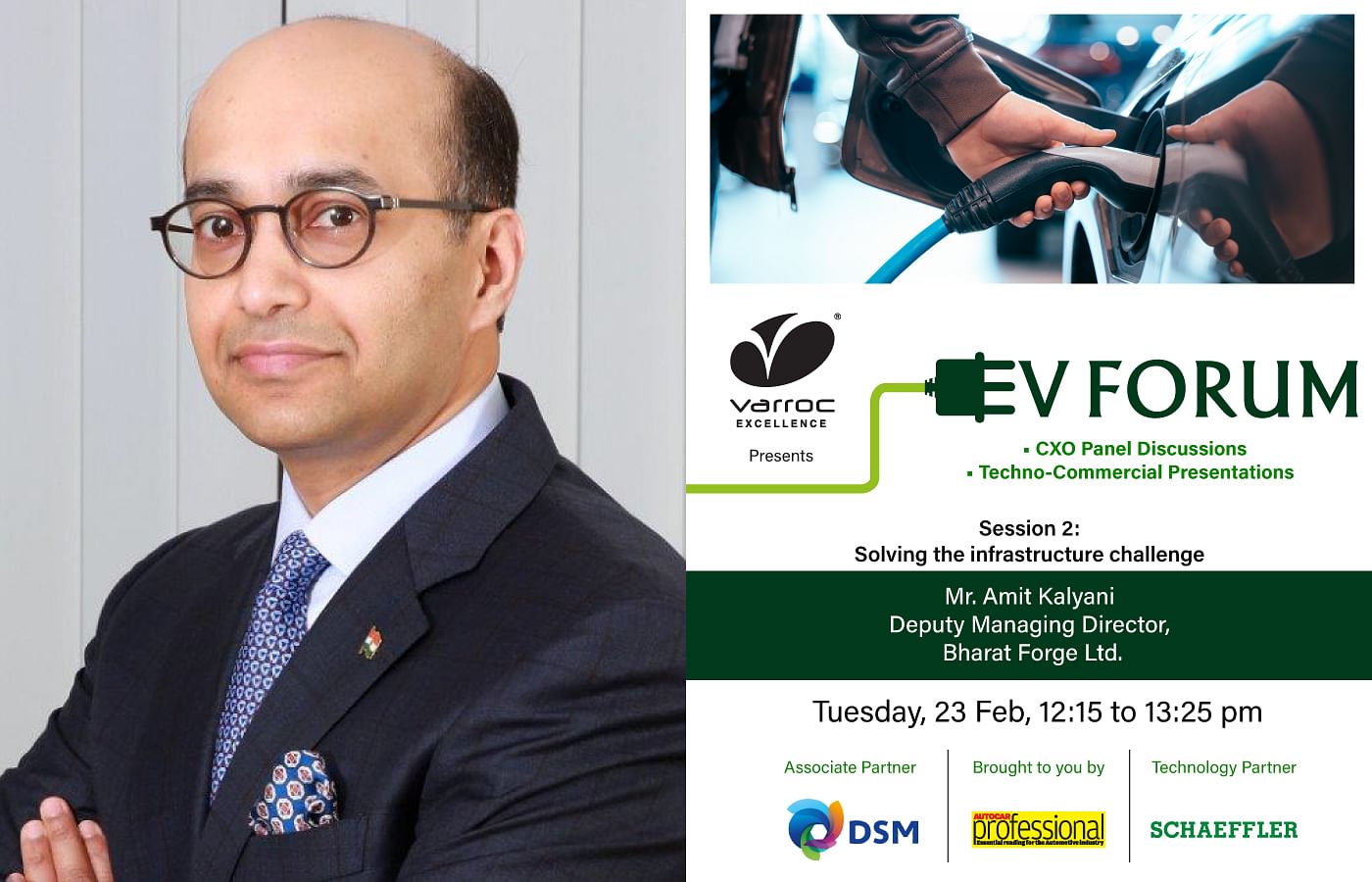
He highlighted how, “India’s electronic industry has been a laggard as a result of poorly thought out policies barring a few areas like Defence and Space. Big leap necessary to make the entire industry switch from conventional to electric mobility. Government intervention crucial in this regard.”
According to him, “Once standards come together, expect regulation around buildings to set up charging infrastructure on a commercial basis. 'Why own when you can pay to use' is a thought that might take precedence. Swapping is going to be a very good intermediate infrastructure.”
He gave the example of city bus routes and school buses to elaborate on how, “market acceptability of any solution will drive its volume growth. We can use BRTS systems and parking time to charge buses which move a large number of people and operate on fixed routes. This will help in rapid transitioning of key polluting vehicles into cleaner and greener options in big cities.”
As Bharat Forge transitions from a mechanical to an electro-mechanical company he is very optimistic about the company’s prospects in addressing EV-related product demand, “Our investment in multiple ventures in two-fold, to accelerate learning and understand how to create a supply value. In FY2022 expect an array of products from these investments.”
Chetan Maini, co-founder & vice-chairman, Sun Mobility too agreed that the, “Government’s role is primarily to layout the framework to put up infrastructure. There are huge challenges in the infrastructure field, need to balance pace and scale of infra management.”
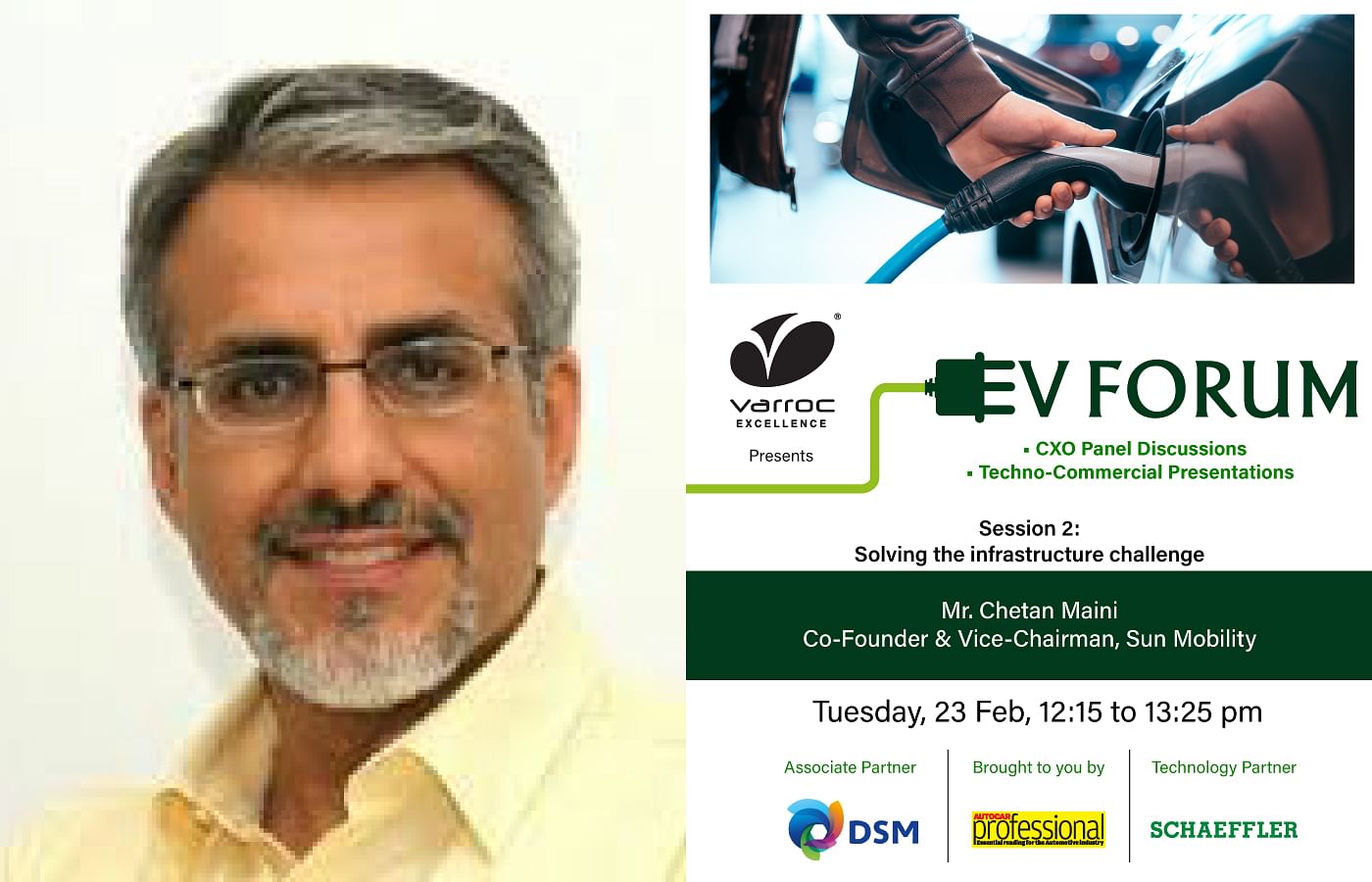
He elaborated that, “It is important to make a realistic assessment of the city’s size, electric vehicles and charging infrastructure in relation to that. Infrastructure issue is complex. With swapping we aim to address consumer’s range anxiety, longer refuelling time and high upfront cost.”
In fact Sun Mobility has almost become synonymous with the battery swapping technology in India. Maini highlighted that, “Swappable batteries an option for many users without the luxury of parking spots. Effort is underway to create infrastructure around the electric poles on street. Charging points and swappable batteries likely to co-exist.”
He detailed that Sun Mobility has, “battery swapping stations in 14 cities. The stations created in collaboration with IOCL are aimed to address infrastructure concern in EV ecosystem, idea of creating access in the same place ensures people are used to going to the same place for refuelling. Infrastructure has to be on scale to enable faster EV adoption.”
But he believes that industry has to unite and move towards a common goal because “Collaboration crucial to offer consumers flexibility and alternative and give a better solution. Sharing cost is important to earn profit over the longer term in the charging infrastructure business.”
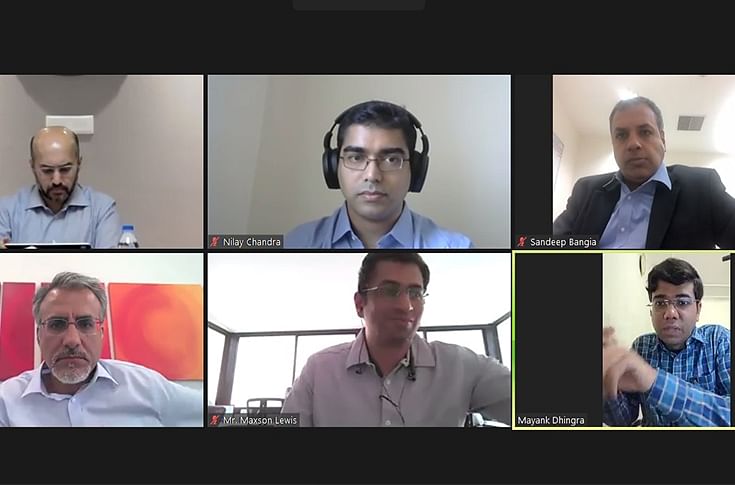
Tata Power is a crucial player providing charging infrastructure to EV players across India. Sandeep Bangia, Head – Electric Vehicles and Home Automation, Tata Power explained that, “Being a power provider, Tata Power in a good place to understand the charging challenge in EV ecosystem. Not much space for high voltage AC chargers. DC fast charging will be more of a requirement in highways. 7.5kW can be installed at home. Home chargers of 3.5kW or 7.5kW adequate to address requirement of average EV user. Public chargers a requirement only during long distance travel.”
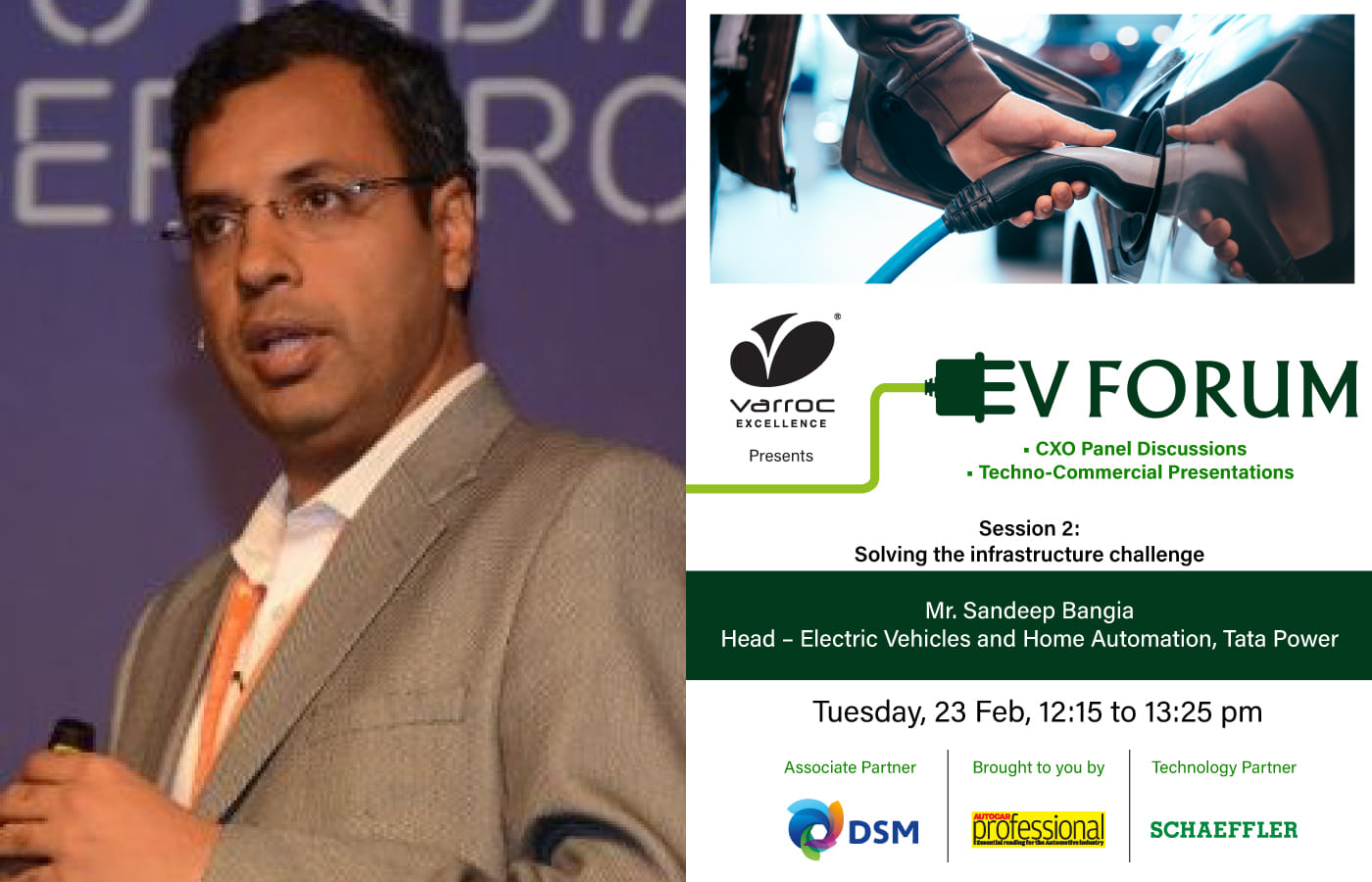
He added that, “Tata Power is putting together a digital application that can be shared. If you do not have your designated parking spot, you can share the charger with 4-5 users. Ideal for apartments where there are no designated spots but has a pooled area that is safe.”
He highlighted that, “Customer looking for three key aspects in charging station- user interface for payment, a convenient location that will also be a logical stop for the consumer and the customer is not necessarily looking for a super-fast charger. A 50kW charger may not be what the customer might be looking for always.”
But there is a cost factor too… Detailing the cost structure Bangia pointed out that, “Cost involved in setting up a charging station will depend on wattage and capacity. From a 3.5kW home chargers to 150kW large scale public chargers very different. Unique application aspect will determine the cost of setting up the charger. Various factors contribute to the cost from Rs 30,000 to over Rs 200,000-300,000. Safe charging is a challenge in the absence of common standards by the govt.”
Infrastructure challenges are different for cars, autos, buses, bikes and scooters. As the speakers detailed that the product profile is crucial, Nilay Chandra, Director – Charging infrastructure, Ather Energy said that, “Consumer is more willing and open about EV adoption. Guidance from govt in a simple way is very important. Simplicity of execution and setting up infrastructure is the missing link in the entire process. This will fast-track the whole adoption process.”
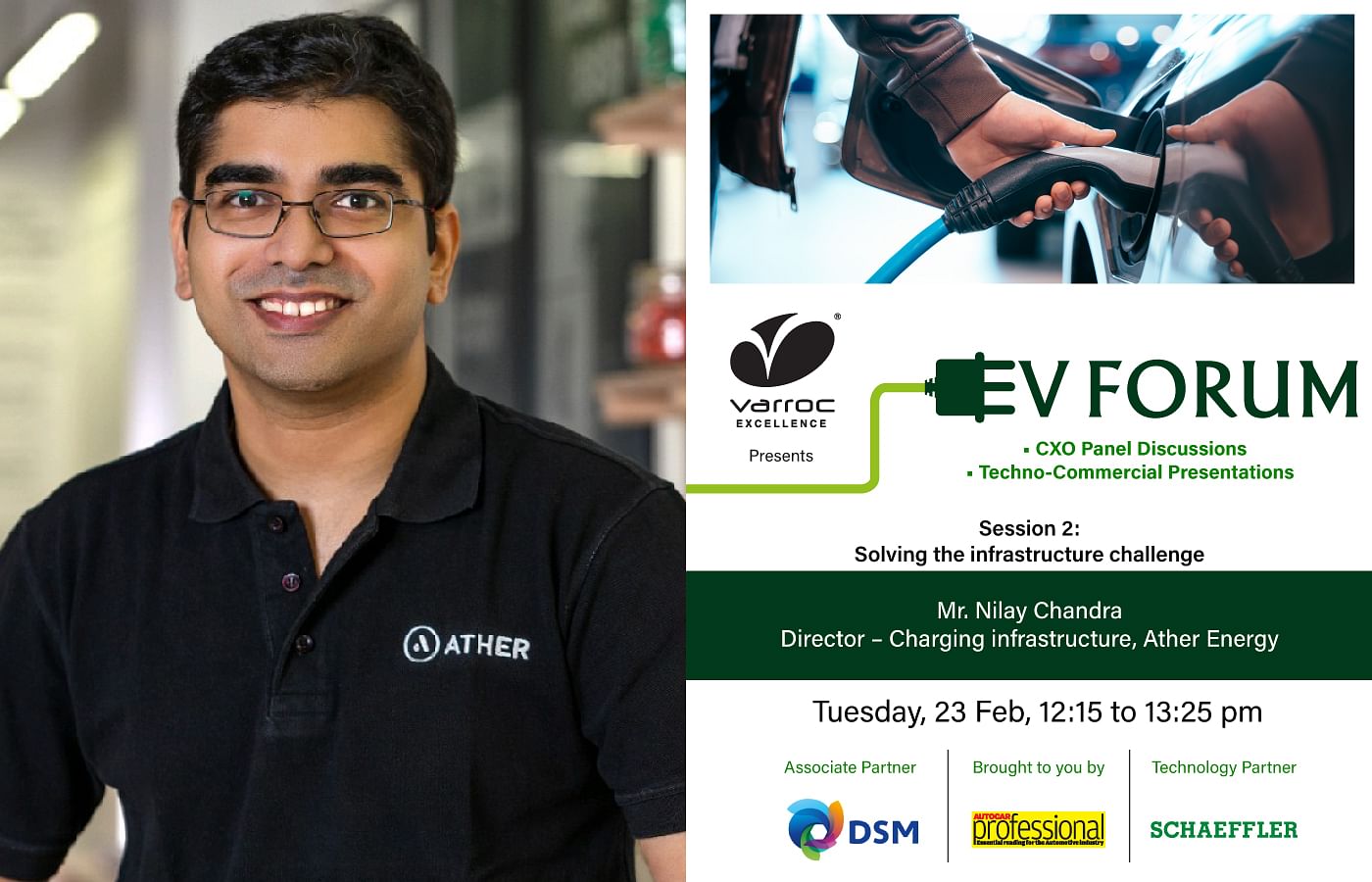
According to him, “Public charging infrastructure more of an assurance to consumers, to convince them to move freely without a worry. Need to actively work towards reducing entry barriers. As we keep increasing penetration, expect more commercial infrastructure at scale. Today rapid investment in charging infra may not make sense but as EV penetration increases, it will.”
Maxson Lewis, MD, Magenta Power added that, “Various charging platforms have unique challenges and legal aspect. We are working on 7 different charging models at the moment. We have been identified as a key partner to install charging infrastructure across 34 cities with government support.”
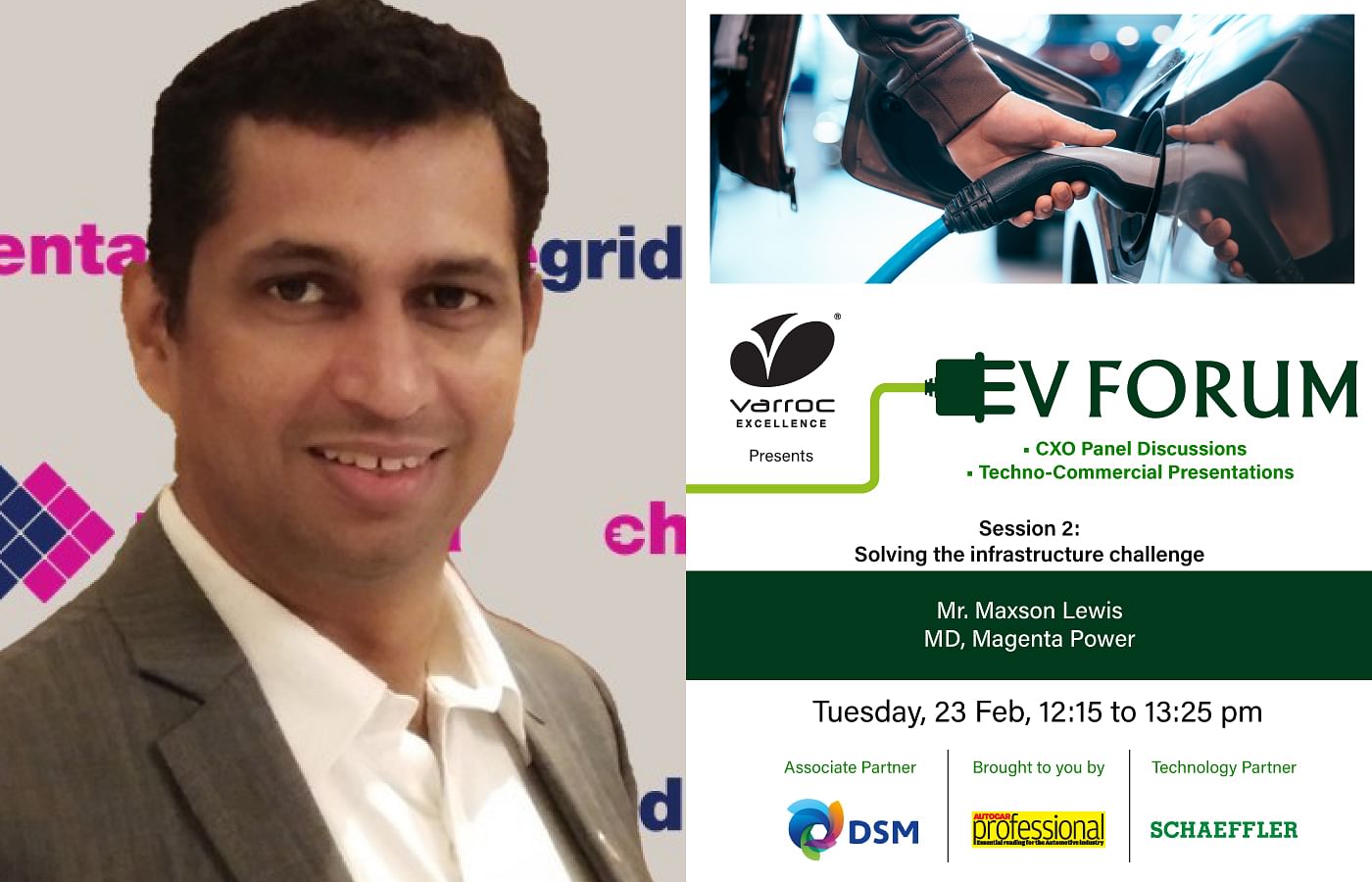
He signed off saying there is, “Need to encourage and increase awareness about safe charging practices across India. Working on low-cost, smart and safe charging solutions and we will be launching it in April. Focus on safe charging more than cheap charging.”
All in all, the series of discussions highlighted how consumer adoption is closely linked to better awareness about electric vehicles and role government policies can play in being enablers of facilitating new technology in the country.
Autocar Professional thanks all the panellists and participants for the lively and informative discussions and interactive sessions. A big thank you to the EV Forum sponsors Varroc, Associate Partner DSM and Technology Partner Schaeffler.
ALSO READ EV Forum Day 1: Localisation and sustainable business model catalysts for faster EV adoption
RELATED ARTICLES
Cosmo First diversifies into paint protection film and ceramic coatings
The Aurangabad, Maharashtra-based packaging materials supplier is leveraging its competencies in plastic films and speci...
JSW MG Motor India confident of selling 1,000 M9 electric MPVs in first year
The 5.2-metre-long, seven-seater luxury electric MPV, which will be locally assembled at the Halol plant in Gujarat, wil...
Modern Automotives targets 25% CAGR in forged components by FY2031, diversifies into e-3Ws
The Tier-1 component supplier of forged components such as connecting rods, crankshafts, tie-rods, and fork bridges to l...






 23 Feb 2021
23 Feb 2021
 15006 Views
15006 Views





 Autocar Professional Bureau
Autocar Professional Bureau




